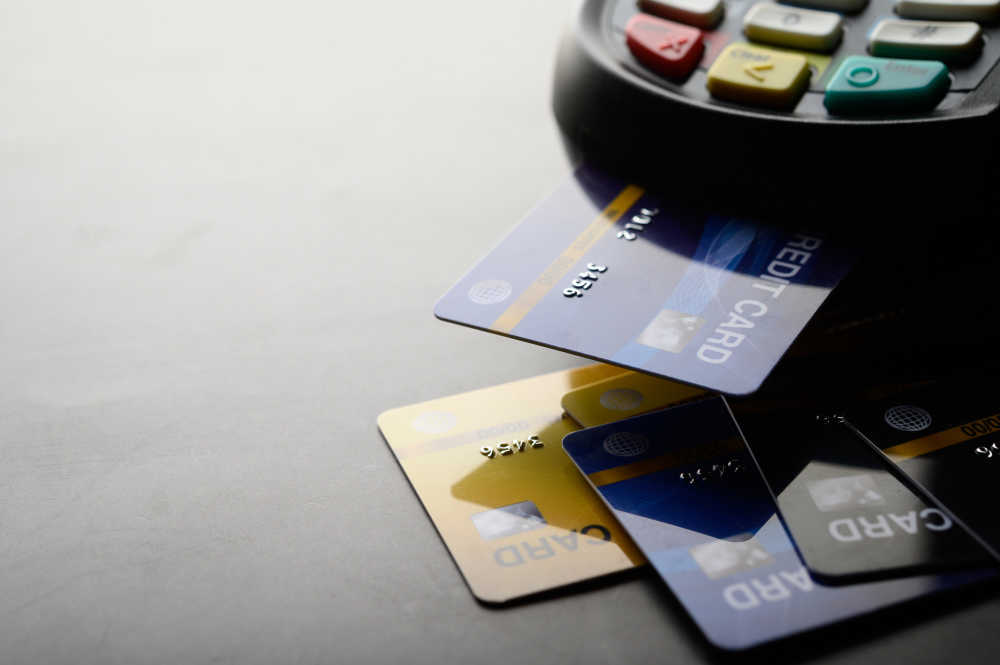Have you ever wondered why prices seem to be creeping higher and higher every time you shop? You might blame inflation or supply chain issues, but have you ever considered the role of credit cards in this sneaky price hike? Yes, credit cards, those little plastic rectangles that fit so snugly in our wallets, might be contributing to the rising cost of everything.
In this article, we’ll explore how credit cards can make your purchases more expensive and uncover the hidden ways they affect your wallet. So, buckle up and get ready to uncover the secrets of credit card costs!
Breaking Free
Before we uncover the dark secrets of credit card costs, what can we do to break free from their grasp? Well, the first step is to be mindful of your spending habits. Think twice before swiping that card and consider whether you really need that impulse purchase.
If you’re already drowning in credit card debt, explore options like getting a personal loan for credit card debt consolidation, or balance transfers to lower your interest rates and simplify your payments. Taking control of your financial situation is crucial to avoid falling into the credit card cost trap.
The Interest Trap
You’re probably aware that if you don’t pay off your credit cards on time every month, you’ll accrue interest on your purchases. And those interest charges could add up over time, thereby costing you money and making whatever items you purchased more expensive. It’s like having a mischievous little interest fairy that sprinkles its magic dust on your purchases, making them more costly in the long run.
But wait, there’s more! Credit card interest rates are often higher than other forms of borrowing, such as personal loans. So, if you find yourself drowning in credit card debt, consider getting a personal loan for credit card debt consolidation. By consolidating your debt into a single loan with a lower interest rate, you can escape the clutches of those high credit card interest rates and start saving money.
The Merchant’s Burden
Now, let’s shift our focus from the consumers to the merchants. Did you know that every time you swipe your credit card, the merchant has to pay a fee to the credit card company? Yes, it’s true! These fees, known as interchange fees, can range from a few cents to a significant percentage of the transaction amount. And guess who ends up bearing the brunt of these fees? That’s right, it’s us, the consumers!
To compensate for these fees, merchants often increase the prices of their goods and services. So, even if you’re paying with cash, you might be indirectly paying for other people’s credit card rewards programs or fancy credit card perks. It’s like being stuck in a never-ending loop of paying for someone else’s shopping spree!
The Psychology of Plastic
Let’s delve into the psychological aspect of credit cards. When you swipe that card, there’s a disconnect between the act of spending and the immediate loss of money. Unlike handing over cold, hard cash, using a credit card feels almost painless. And when spending feels painless, guess what happens? We tend to spend more!
Studies have shown that people are more likely to overspend when using credit cards compared to cash. It’s like a magic trick where your brain is tricked into believing that you have an endless supply of money. But alas, when the credit card bill arrives at the end of the month, reality comes crashing down, along with the weight of your overspending.
The Vicious Cycle
So, here’s how it all comes together: the interest charges, the merchant fees, and the psychology of plastic. You overspend with your credit card, the merchant raises prices to compensate for interchange fees, and the credit card company happily charges you interest on your unpaid balance. It’s a vicious cycle that keeps on spinning, making everything you buy more expensive than it should be.
In conclusion, credit cards might be convenient and offer enticing rewards, but they come at a cost. From interest charges to merchant fees and the psychological impact of plastic, credit cards can make everything you buy more expensive than you realize. So, the next time you reach for that shiny piece of plastic, think twice about the true cost of your purchases. Remember, getting a personal loan for credit card debt consolidation could be a smarter move in the long run.










